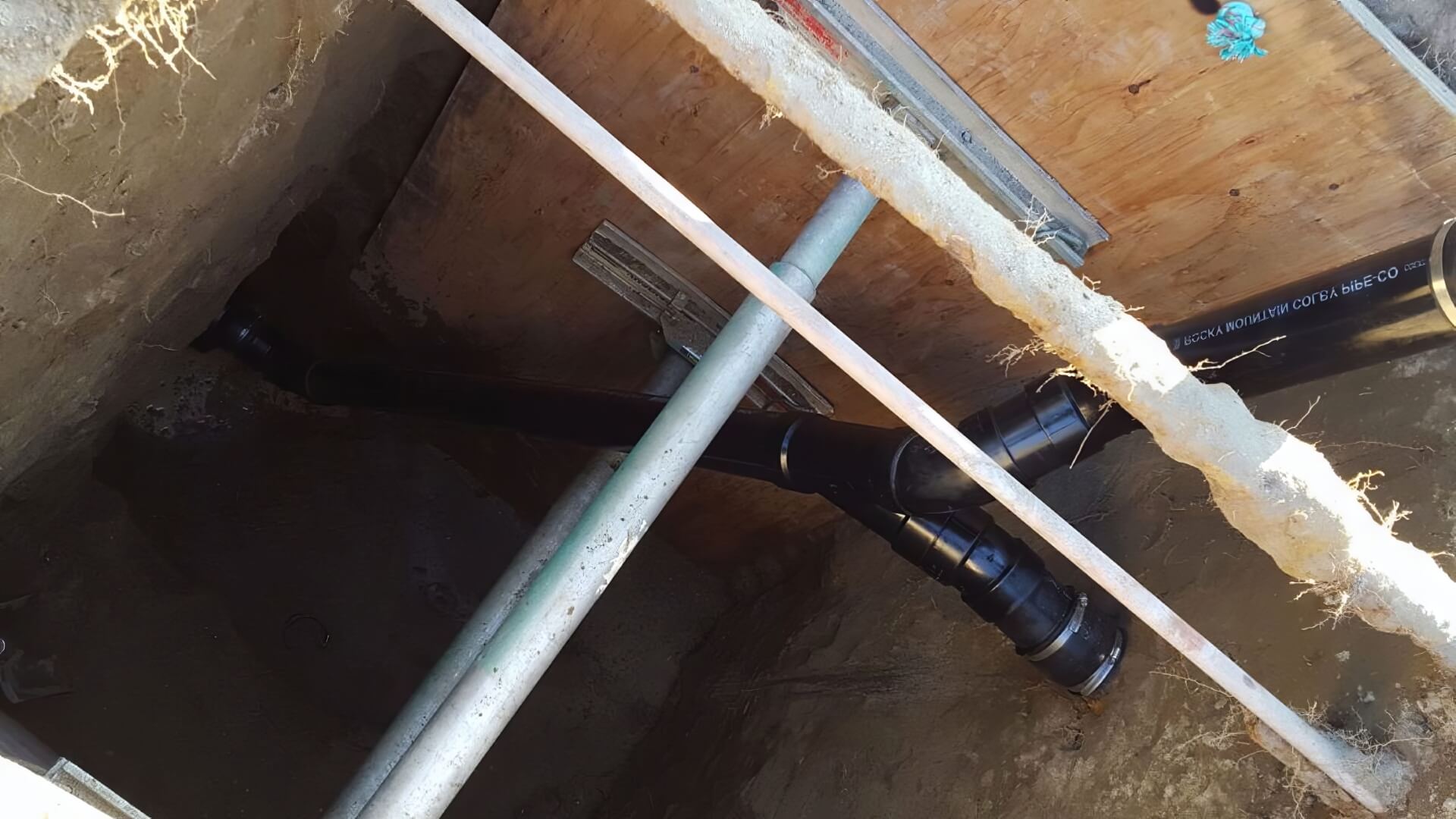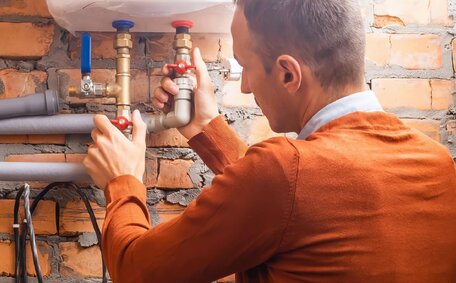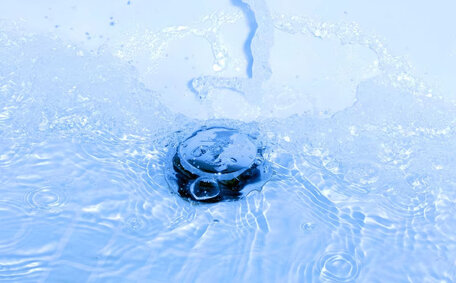Introduction: Deciding Between DIY and Professional Installation
Setting up a new water heater requires careful consideration. Homeowners must decide between self-managing their water heater installation or engaging professional plumbers. Deciding to install a hot water system should consider one’s technical skills, understanding of the complexity, and the potential risks and benefits.
A DIY installation, which might involve handling all plumbing hot water elements yourself, may seem like an attractive option to save money on labour costs. However, Weighing the necessary expertise and care to install a water heater safely and properly is crucial. Attempting to cut corners risks comprising safety, failing to meet regulations, voiding warranties, and causing extensive property damage if anything goes wrong.
This guide provides key considerations for homeowners deciding between DIY or professional water system installation. It aims to assist readers pondering 'i install water systems’ in making an informed decision aligned with their individual capabilities and priorities.
Understanding Safety Risks and Difficulties
DIY hot water heater installation, which includes the process to install water heater units, comes with considerable safety risks that homeowners should fully understand before proceeding. Improper installation can put your home at risk due to gas line breaches, leading to malfunctions, gas leaks, electric shocks, burns, falls, or even an explosion in the water tank.
Key dangers when installing a hot water heater yourself include the need for precise electrical work:
- You should always ensure there are no faulty gas connections leading to dangerous leaks or fire hazards
- Electrocution from improper electrical wiring
- Scalding from incorrect plumbing resulting in sudden steam releases
- Falls from ladders
- Muscle strains from carrying heavy equipment
- Flood damage if connections leak
Neglecting local regulations or permits may result in violations of building codes for your water system. This can jeopardise home insurance coverage.
It is crucial to consider when homeowners assessing DIY consider their technical capabilities for a diy water heater against these risks. Make sure to use appropriate safety gear and precautionary measures are essential for those proceeding. Alternatively, enlisting a plumber to install your hot water system can reduce these dangers with their licensed expertise.
Following Regulations and Codes
It’s critical to follow all relevant local building codes and plumbing regulations in Ryde when installing hot water systems. Failing to adhere to the law can lead to hefty fines, legal issues, and complications with insurance and warranties.
The key regulations include:
- AS/NZS 3500 – National Plumbing and Drainage Code
- AS/NZS 5601 – Gas Installations
- AS/NZS 3000 – Wiring rules
- AS 4234 – Heated water systems
Before installation, it’s essential to address critical details, like installing a drain valve and verifying tap compatibility with the hot water system. The Ryde City Council requires development approvals for installing most new systems.
Using licenced plumbers for your water heater installation can be beneficial for solar hot water and gas hot water systems to ensure they meet codes and regulations. Professionals stay informed on legal requirements and best practices. They also take responsibility for pulling any necessary permits.
Attempting a DIY hot water replacement install without proper approvals risks stringent penalties. It may also void manufacturer warranties due to non-compliance. This could mean you’re bearing the full price for your heater replacement through future repairs or parts replacements rather than utilising warranty claims.
Following regulations protects safety, avoids fines, and secures warranty coverage. Using qualified plumbers offers tranquillity as you keep mind that the work meets all legal and technical requirements.
Sizing and Locating the Hot Water System
Selecting the appropriate size for your hot water system demands careful planning to meet your family’s needs. An undersized water unit risks not having enough hot cold water supply, while a heater that’s oversized wastes energy and money.
When sizing electric water systems, consider:
- Number of household occupants using hot water
- Peak usage times
- Flow rate of taps and appliances
- Climate impacts in Ryde, Sydney
Allow scope for exceeding the current growth in future demand for your new water system, but avoid drastic oversizing. Consult sizing calculators or professionals to determine optimal capacity.
The installation location for which I install water heater systems should include a drain pan and enable:
- Safe access without hazards
- Minimal pipe runs for efficiency
- An exterior wall for gas fluing
- Adequate drainage
- Protection from weather elements
Also assess structural support, ventilation, gas and water connections when choosing the site. Consider ease of future maintenance or replacements.
Carefully planning size and placement ensures the instant water heating system meets your needs while saving money and offering some hot water readily available. When comes to matching a system to household needs, consult plumbers if uncertain.
Venting and Piping Considerations
Understanding what your hot water system do is crucial when installing units to facilitate safe operation. Vents remove combustion byproducts from natural gas and prevent deadly carbon monoxide from accumulating indoors, while hot water faucet temperatures should be adjusted to avoid scalding. Ensure that any water connections, including hot faucet links and gas lines, are properly managed.
Vents should be rust-resistant, made from materials like galvanised steel or PVC.
Any cracks or separations enable hazardous gas leakage into living spaces. Keep vent routing short and direct withminimal elbows to maintain air draw.
Use copper, stainless steel rigid pipe, or flexible connectors for water lines which can do better in terms of durability. Install temperature and pressure relief valves, commonly known as TP valve, on hot water lines to prevent dangerous overheating or strains.
Size them to supply adequate flow without excessive pressure drop. Include isolation valves to easily shut off the heater.
For electric hot water systems, secure all piping connections tightly without leaks according to manufacturer specifications. Improper joints or alignments reduce efficiency, and installing a water heater without ensuring tight connections poses safety issues from potential water damage or gas leaks.
Venting and piping require technical precision fitting codes for optimal function and household safety. Unless highly experienced, homeowners should hire professional plumbers to ensure correct water installation.
Step-by-Step Installation Guide
Homeowners declaring 'I install hot water systems’ should choose from different types of technical instructions and adhere precisely to these key steps:
- Switch off the water supply and electricity to the installation area.
- Review the manufacturer’s instructions for your gas water heater and prepare all necessary materials and tools.
- Turn off the main water supply, then mount and secure the water heater to the guidelines, ensuring proper clearances.
- Install venting and exhaust according to code specifications.
- Connect water piping and fittings according to diagrams during installation.
- Complete gas connections and test for leaks from the system being replaced.
- Wire electrical supply and install a circuit breaker in compliance with AS/NZS 3000.
- Refill plumbing lines after installation and check for leaks under pressure.
- Confirm proper operating temperatures and flow.
- Flush the system thoroughly post-installation to remove any debris.
- Apply for any final inspections from local authorities.
Following instructions precisely, ensuring water systems can be installed safely, and adhering to all applicable standards remain extremely important. Alternatively, for complex tasks such as type hot water unit installations, hiring professional plumbers mitigates DIY risks and liabilities.
Hiring a Licensed Professional Plumber
With the complexity of hot water system installations, most homeowners benefit greatly from hiring a licenced professional plumber like Ryde Plumbing.
Licenced plumbers bring years of training and experience to ensure water heater installs adhere to industry codes and best practices. They carry full insurance and liability coverage, protecting homeowners if anything goes wrong.
Key benefits of hiring professionals include:
- Ensuring work complies with regulations and meets safety standards
- Proper sizing, venting and connections for optimal performance
- Streamlined permit approvals with your local council inspections
- Ongoing maintenance and service capabilities
- Warranty coverage from reputable plumbers
Clean Energy Finance Corporation (CEFC) finance does not cover DIY installation costs. Hiring a licenced plumber, such as Ryde Plumbing, grants access to rebates and incentives during installation.
Contact licenced professionals at Ryde Plumbing on 1300 349 338 or [email protected] to discuss hot water system installations or replacements.
Ensuring Proper Function, Efficiency, and Safety
After installing gas hot water systems, After installation, homeowners should conduct checks to confirm proper and efficient functioning, ensuring safety.
Conduct tank leak checks to ensure fittings supply water without issues under normal operating pressure. Confirm that ventilation, gas lines, exhaust fluing, and drainage are functioning correctly.
Look to a plumber who you can trust to assess the installation. Professionals can repair your system to meet compliance with regulations and ensure safe operation per industry standards. Request a comprehensive report on any issues that need to be rectified.
To improve your system’s efficiency and lifespan, establish an annual service schedule after ensuring the initial performance is satisfactory. This allows inspection of parts like anodes and heating elements before operational problems arise. Technicians can also monitor and adjust components if flow rates decrease over time.
Ongoing maintenance serves as signs your system may require attention, prompting homeowners to check basic safety elements like leak-free pipes, minimal corrosion, and vent blockages. Promptly identifying potential hazards can mitigate risks and maintain affordable utility bills.
With large investments in hot water systems, it is worth confirming optimal installation, efficiency, and safety through professional assessments and regular upkeep. This maximises performance, avoids issues leading to premature failure, and sustains household convenience, comfort and economy.
Understanding When DIY Reaches Its Limits
While handy homeowners may succeed with basic installations, installing new hot water systems reaches its limits in several scenarios that demand professional expertise:
- Converting power supply from electric gas to natural gas or vice versa
- Installing a new tank with larger capacity requiring structural modifications
- Correcting venting or piping issues in existing setups
- Updating old systems built under outdated regulations
- diagnosing and servicing complex problems or faults in your water tank
It is also prudent to call qualified plumbers immediately in some hot situations of flooding, electrical faults, gas leaks or water contamination that jeopardise your house safety.
DIY repairs may seem straightforward but can overlook underlying problems and infractions of updated codes. This compromises safety - always the highest priority. With credentials and state-of-the-art equipment, professional plumbers fully assess and rectify risks.
Conclusion: Making the Best Choice for Your Home
Choosing between DIY installation and hiring professional plumbers involves evaluating your skills and the task’s complexity and prioritising safety.
Experienced DIY homeowners may consider a self-install, but must recognise when professional help is needed for certain systems. However, significant risks arise from attempting the installation process beyond your expertise. Converting power systems, upgrading tank sizes, addressing venting issues or meeting updated regulations generally exceeds DIY limits.
It is crucial to contact qualified plumbers immediately during dangerous incidents like flooding, electrical faults, gas leaks, or contamination. Compromising safety threatens lives and property.
Most homeowners, prioritising household safety, will find that hiring licensed professionals such as Ryde Plumbing guarantees adherence to technical specifications, building codes, and safety standards. It also streamlines approvals, leverages experience solving complex challenges, and provides ongoing maintenance capabilities - all while bearing responsibility backed by insurance and warranties.
When installing or replacing hot water heaters, consider your comfort with DIY projects in relation to the project’s complexity. Weigh up risks versus potential cost savings. Then decide wisely between self-installation and enlisting qualified plumbers to ensure long-term protection, efficiency, and performance of your hot water system.
Contact Ryde Plumbing at 1300 349 338 for advice tailored to your situation and discuss your hot water system needs.






